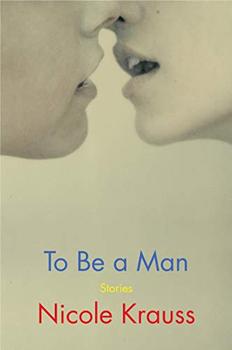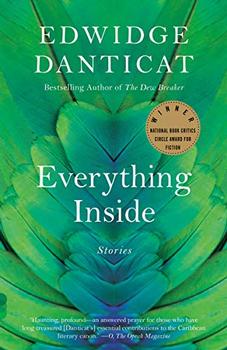Summary | Excerpt | Reviews | Beyond the book | Read-Alikes | Genres & Themes | Author Bio

Stories
by Jamel BrinkleyIf his debut collection of short stories, A Lucky Man is any indicator, Jamel Brinkley is poised on the cusp of becoming a literary superstar.
The essence of A Lucky Man can perhaps be best summed up by Brinkley's approach to the craft of writing in an interview he gave to The San Francisco Chronicle: "I finally got to the point where I'm taking...writing seriously, so what's the rush now? What's the point of bulldozing my way?" That measured attitude leads to less histrionics and more pathos, as his black, male characters grapple with the complexities of navigating everyday life in the United States where the chips are mostly stacked against them.
Toxic masculinity is increasingly under the microscope as part of contemporary discourse, and Brinkley unearths the reasons for these fractured men's equally fractured lives. Most of them have a complicated relationship with their fathers and this history looms large as they move forward. "All I wanted was fifteen bucks to go to the barbershop, but the thought of asking for it made me feel like punching a wall. It stressed me the hell out to ask Ma for anything, especially that summer, when I'd decided to leave my boyhood behind," says the young narrator of "J'ouvert 1996." "Pop would have known just what to say to calm me down or make me laugh. He wasn't around anymore though, and he had stopped responding to my letters." Without a male authority figure squarely by their side, where do these anchorless young men find succor? It's a question that delivers a variety of answers across the ten stories.
The intersection between race and gender fluidly plays out in how these men interact with the women around them. In "Wolf and Rhonda," the lead character Wilfred Jones is haunted by his treatment of an old classmate, but her summary dismissal of his advances at a class reunion crushes his ego even more. The shadow of shame and genuine bewilderment is cast over these men's interactions as they figure out the complicated language of women and family. The titular story shows that the protagonist, whose wife has left him, is anything but a lucky man, but his uncomfortable pastime of photographing women on the subway forces the reader to navigate the grey areas of character: Is he a good man or not? How deeply flawed is he?
In my favorite story in the collection, "I Happy Am," a black boy looks forward to a school field trip to a posh house in an upscale suburb, only to be disappointed that the owner is a black woman not much different than his own mother. Where is the fancy home and the fancy food, he wonders? "He didn't like the sensation of having driven an hour from home only to arrive at a bigger version of the same place." The story is a subtle yet riveting look at the view of white society and black aspiration.
"I just remember being very young and in certain circumstances, feeling very much at home in the idea of being a straight black male — maybe at home with family or friends — and other moments feeling like, well, I don't fit those expectations at all," Brinkley says in his Chronicle interview. The men in his compelling short story collection seem to feel the same way: they're comfortable in their skin and their identities, yet on occasion, completely confounded by their place in the world.
![]() This review was originally published in The BookBrowse Review in May 2018, and has been updated for the
July 2019 edition.
Click here to go to this issue.
This review was originally published in The BookBrowse Review in May 2018, and has been updated for the
July 2019 edition.
Click here to go to this issue.

If you liked A Lucky Man, try these:

by Nicole Krauss
Published 2021
In this dazzling collection of short fiction, the National Book Award Finalist and New York Times bestselling author of The History of Love - "one of America's most important novelists and an international literary sensation" (New York Times) - explores what it means to be in a couple, and to be a man and a woman in that perplexing relationship and...

by Edwidge Danticat
Published 2020
From the internationally acclaimed, best-selling author of Brother, I'm Dying, a collection of vividly imagined stories about community, family, and love.
Your guide toexceptional books
BookBrowse seeks out and recommends the best in contemporary fiction and nonfiction—books that not only engage and entertain but also deepen our understanding of ourselves and the world around us.